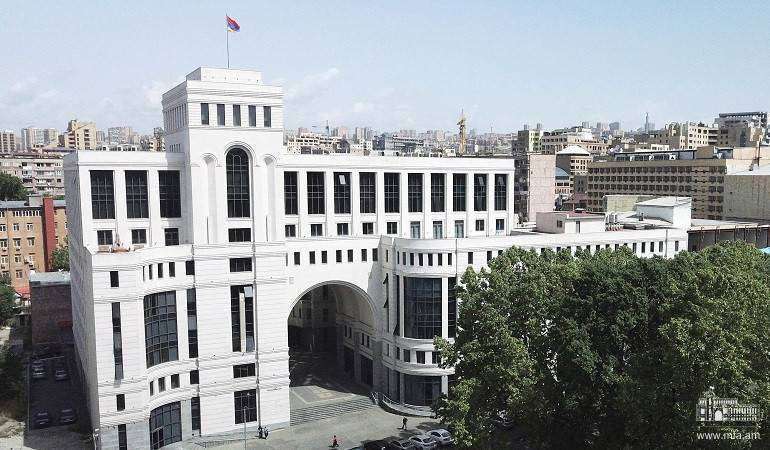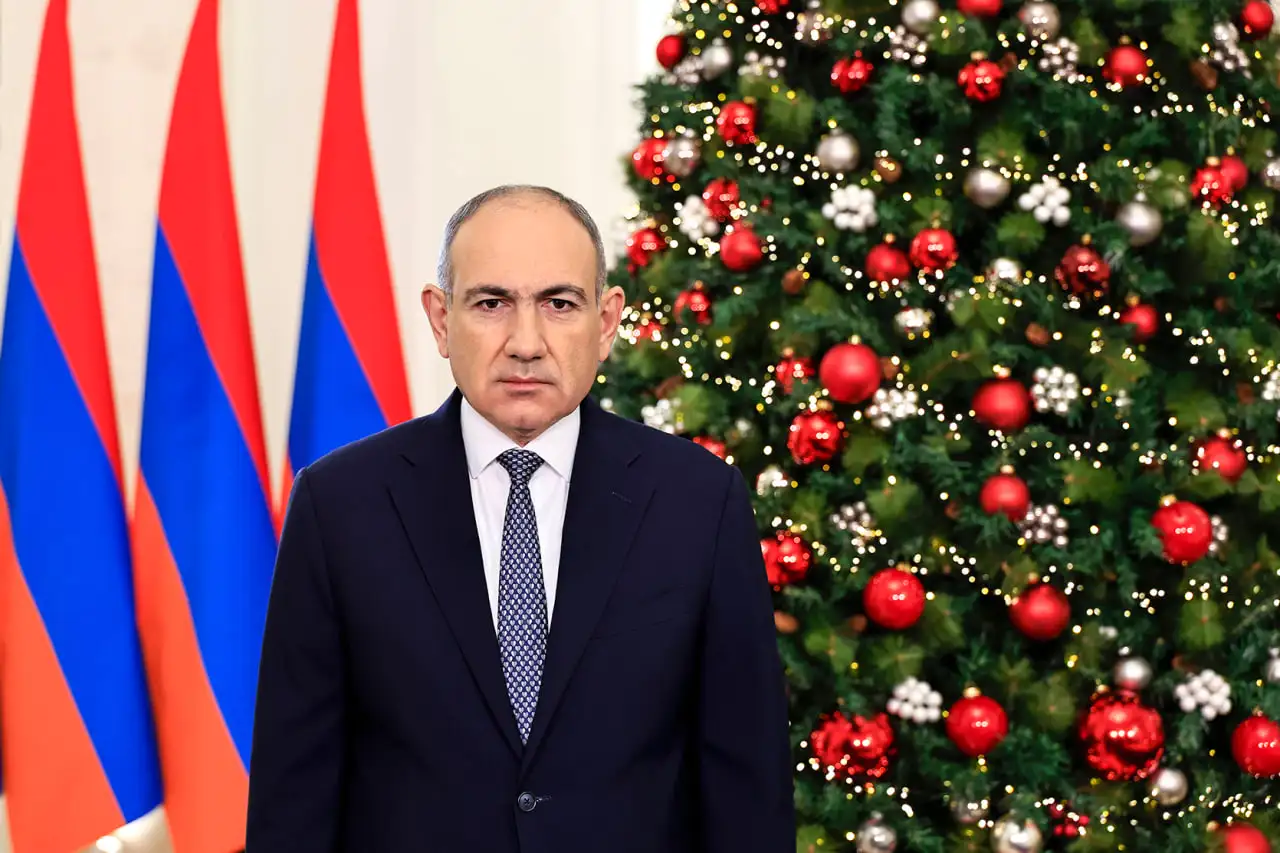RA MFA spokesperson Ani Badalyan answered several questions from "Armenpress" on October 4.
- Ms. Badalyan, referring to your comment of October 4, the spokesperson of the Foreign Ministry of Azerbaijan said that from the study of the decision made by the Supreme Court of Armenia regarding the regulation of the joint activity of the border delimitation commissions of Armenia and Azerbaijan, they concluded that this decision further emphasizes the territorial demands of Azerbaijan. In the Constitution. How about this?
- The decision of the Constitutional Court very clearly and directly says that only those provisions of the 1990 Declaration of Independence of Armenia have constitutional force, which are expressed in the articles of the RA Constitution. Therefore, what needs to be written in the text following the preamble of the RA Constitution, that is, in the articles of the Constitution, cannot be attributed to the Constitution. There is no room for any other interpretation, mainly since the High Court has recorded that no other position has ever been established in its previous decisions. : Thus, the fundamental principles of Armenian statehood and nationwide goals mentioned in the preamble of the RA Constitution are those expressed in the subsequent text of the RA Constitution, and nothing there can be interpreted as a territorial claim against any country.
- The Foreign Ministry of Azerbaijan spokesperson noted that territorial claims against Azerbaijan are also included in other legal acts of the Republic of Armenia.
- The Republic of Armenia has addressed this issue several times at the highest and highest level. Part 3 of Article 5 of the Constitution of the Republic of Armenia stipulates that ratified international treaties have a higher legal force than the domestic legislation of the Republic of Armenia. The wording of that article is more specific as follows. "In case of conflict between international treaties ratified by the Republic of Armenia and norms of laws, the norms of international treaties shall be applied." In the agreed part of the draft agreement, "On the establishment of peace and interstate relations between Armenia and Azerbaijan," there is an article stating that the parties have no territorial demands from each other and undertake not to make such demands in the future. There is also an article that states neither party can refer to its domestic law to defeat the implementation of the Peace Treaty. In other words, when Armenia and Azerbaijan signed the Peace Treaty, received the conclusion of compliance with the Constitutional Court's Constitution, and were ratified by the RA National Assembly, it will have a higher legal force than any domestic law. Therefore, the conclusion of the Peace Treaty will dispel any concerns that both Armenia and Azerbaijan have regarding the different legislations of the two countries, if any.
- The spokesperson of the Azerbaijani MFA also said that Armenia's expressed loyalty to the Alma-Ata Declaration does not mean that Armenia has no territorial claims from Azerbaijan because the Alma-Ata Declaration has nothing to do with where the borders of the CIS member states cross and territories belong to the country.
- That interpretation is inappropriate because the Alma-Ata declaration of December 21, 1991, clearly states that the parties recognize each other's territorial integrity and the inviolability of the existing borders. Therefore, the countries that signed the Alma-Ata Declaration recognized the integrity of the de jure territories of the Soviet Republics at the time of the collapse of the USSR and the de jure existing inter-republican administrative borders as a state border. Those borders are known, and maps expressing those borders exist both in Armenia and Azerbaijan.
By the way, the wording of the Peace Treaty stating that the parties undertake not to have territorial claims against each other in the future seems to dispel Azerbaijan's claims that Armenia has a "backup option" to present territorial claims to Azerbaijan.
The interpretation of the Alma-Ata declaration, which is present in the statements of the spokesperson of the Azerbaijani Foreign Ministry, may mean that Azerbaijan itself has territorial demands from Armenia; it just wants to create a smokescreen to cover it up with accusations directed at Armenia.
- The spokesperson of the Azerbaijani Foreign Ministry again referred to the acquisition of weapons and equipment by Armenia, calling it mass militarization.
- If we compare the military expenses of Armenia and Azerbaijan in absolute numbers, in proportion, and terms of the types of weapons purchased, we will see who is carrying out mass militarization. On the contrary, the top leadership of the Republic of Armenia declares that it will not adopt a security concept based only on the army and considers the regulation of relations with its neighbors and the establishment of peace in the region to be an essential part of its security concept. And the top leadership of Azerbaijan declares that their main task is to strengthen military capabilities.
It is not superfluous to remember that Armenia has offered Azerbaijan many times and now also offers to create mutual arms control mechanisms. Azerbaijan leaves that proposal unresponsive, adopting increasingly aggressive rhetoric towards the Republic of Armenia. I reaffirm that the Republic of Armenia has no offensive agenda other than defending itself against possible aggression. Meanwhile, Azerbaijan issues almost daily threats to the Republic of Armenia.
- The spokesperson of the Azerbaijani Foreign Ministry also stated that Armenia is campaigning to world leaders not to participate in the COP-29 summit, which will be held in Baku in November. How would you interpret this?
- I want your attention to the fact that the spokesperson of the Azerbaijani MFA did not respond in any way to the questions raised in my comment on October 4. Those questions were: Is Azerbaijan preparing aggression against the Republic of Armenia? Does it refuse to recognize the territorial integrity of the Republic of Armenia? Does it refuse the peace agenda? Aggressive rhetoric of official Baku and rejection of proposals to sign a Peace Treaty, including the agreed articles, make many Armenian and international experts conclude that Azerbaijan will use COP-29 to create a smokescreen of legitimacy to escalate the situation shortly. Moreover, the number of such analyses is increasing. Many analysts think that to exclude such a prospect, it is necessary to sign the agreed content of the Peace Treaty before COP-29; otherwise, without it, the leaders going to Baku may unwittingly become warmongers. For its part, Armenia says it is ready to sign a peace agreement before COP-29. I want to emphasize that the Republic of Armenia supported the decision to hold COP-29 in Baku as a tool for establishing trust between the parties and peace in the region, and we would not want it to be used for the opposite purpose.




















